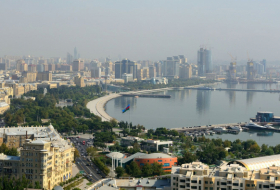Germany plans to lift travel restrictions for European countries on 15 June, but is advising against visiting the UK while quarantine rules are in place.
The country issued a warning against all non-essential foreign travel in March in a bid to curb the spread of coronavirus.
On Wednesday, foreign minister Heiko Maas said the warning would be replaced with more conventional travel advice "so long as there are no longer entry bans and no large-scale confinement" in the countries concerned.
Germany aims to lift travel restrictions for EU countries, other countries outside the EU that are part of Europe's passport-free Schengen travel area, and Britain.
Tui also announced on Wednesday it would start its summer flight plan on 17 June after Germany lifts its travel restrictions.
Mr Maas said all countries concerned met the criteria except Norway, due to an entry ban, and Spain, where he said parliament was deciding whether to extend a ban or not.
However, he said the new travel advice is not "an invitation to travel" and advised against trips in some cases, "for instance to Britain, so long as there is still an obligatory 14-day quarantine for everyone arriving there".
Mr Maas added: "We will continue to make the lifting of the travel warning dependent on how the situation on the ground develops."
New warnings could be issued if a country records more than 50 newly infected people per 100,000 over seven days, he said.
The UK government has confirmed plans to impose a 14-day quarantine for people arriving in the country starting next week, despite pleas from the travel industry to drop the idea.
Airlines and tour companies say the quarantine will derail plans to rebuild business, while others say the measure comes too late.
Officials say the quarantine will help prevent a second wave of infections, though most neighbouring European countries have lower infection rates.
From Monday, travellers and returning Britons coming from all countries except Ireland will be asked to self-isolate for two weeks, and those who fail to comply may be punished with a £1,000 spot fine, or by prosecution and an unlimited fine.
It comes as other European countries reopen their borders and ease travel restrictions imposed during the pandemic.
In Portugal, some low-cost flights have resumed to Faro, in the country's southern Algarve region, from Zurich and Luxembourg.
Economy minister Pedro Siza Viera said Portugal is in "advanced discussions" with Germany to establish a so-called "air corridor" which could allow tourists who test negative for coronavirus to fly to an area with a low infection rate, such as the Algarve.
Portugal is also in talks with the UK about creating an air corridor, also known as an air bridge.
Spain is working on gradually allowing tourists in from countries further on in the fight against COVID-19 from 22 June - earlier than its previous target of 1 July. Tourism accounts for around 12% of its economy.
Austria is lifting restrictions, including quarantines for all neighbouring countries except Italy as of Thursday.
Foreign minister Alexander Schallenberg said: "We will lift all the coronavirus-related border and health checks in relation to seven bordering countries - Germany, Liechtenstein, Switzerland, Slovakia, Slovenia, the Czech Republic and Hungary."
Iceland is also planning to relax quarantine rules on 15 June and welcome back international tourists after it moved from an "emergency phase" to "alert phase".
The Czech Republic and Slovakia are fully opening their common border for travellers on Thursday and fully lifting restrictions that have been adopted to contain the virus.
















































